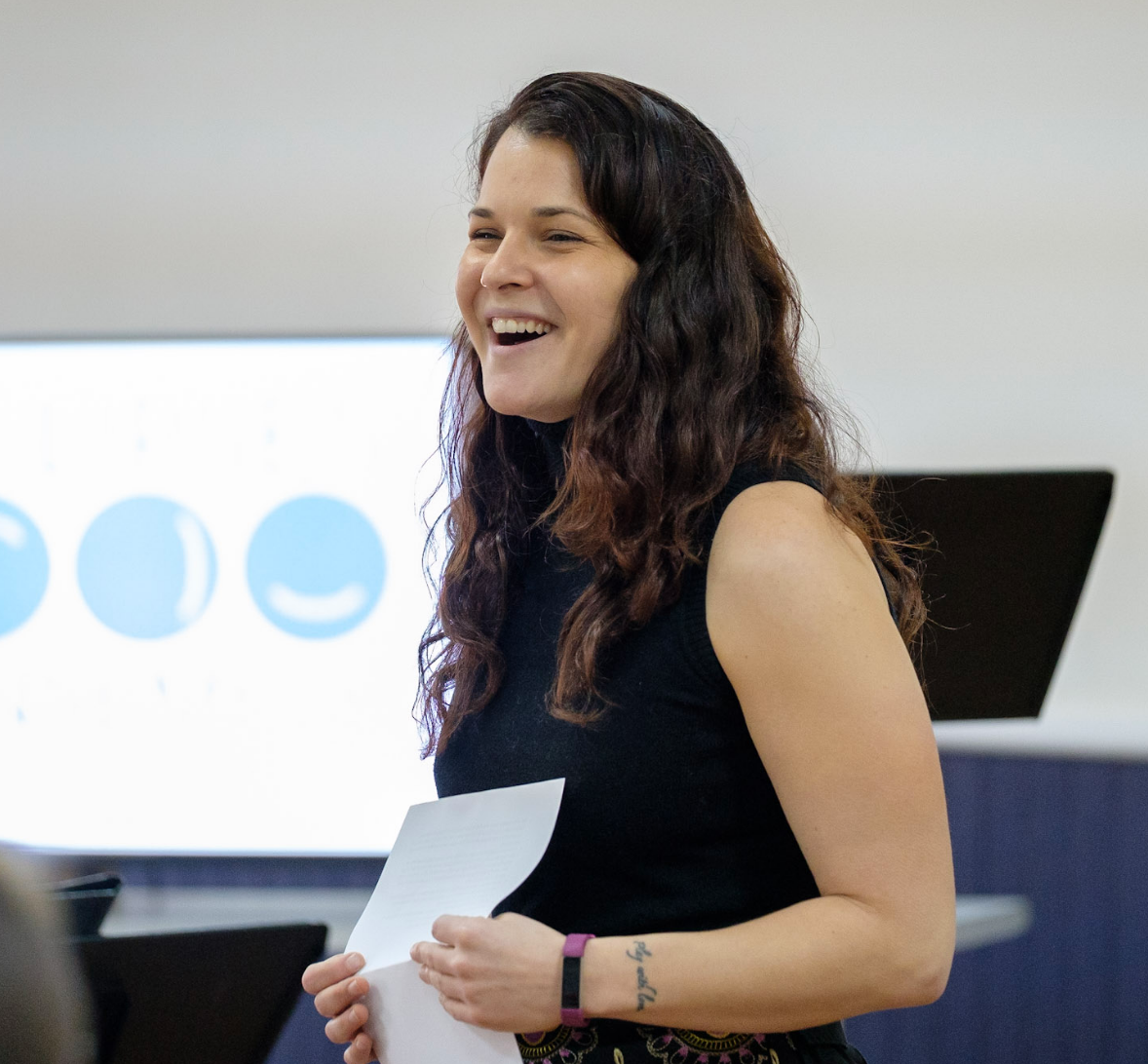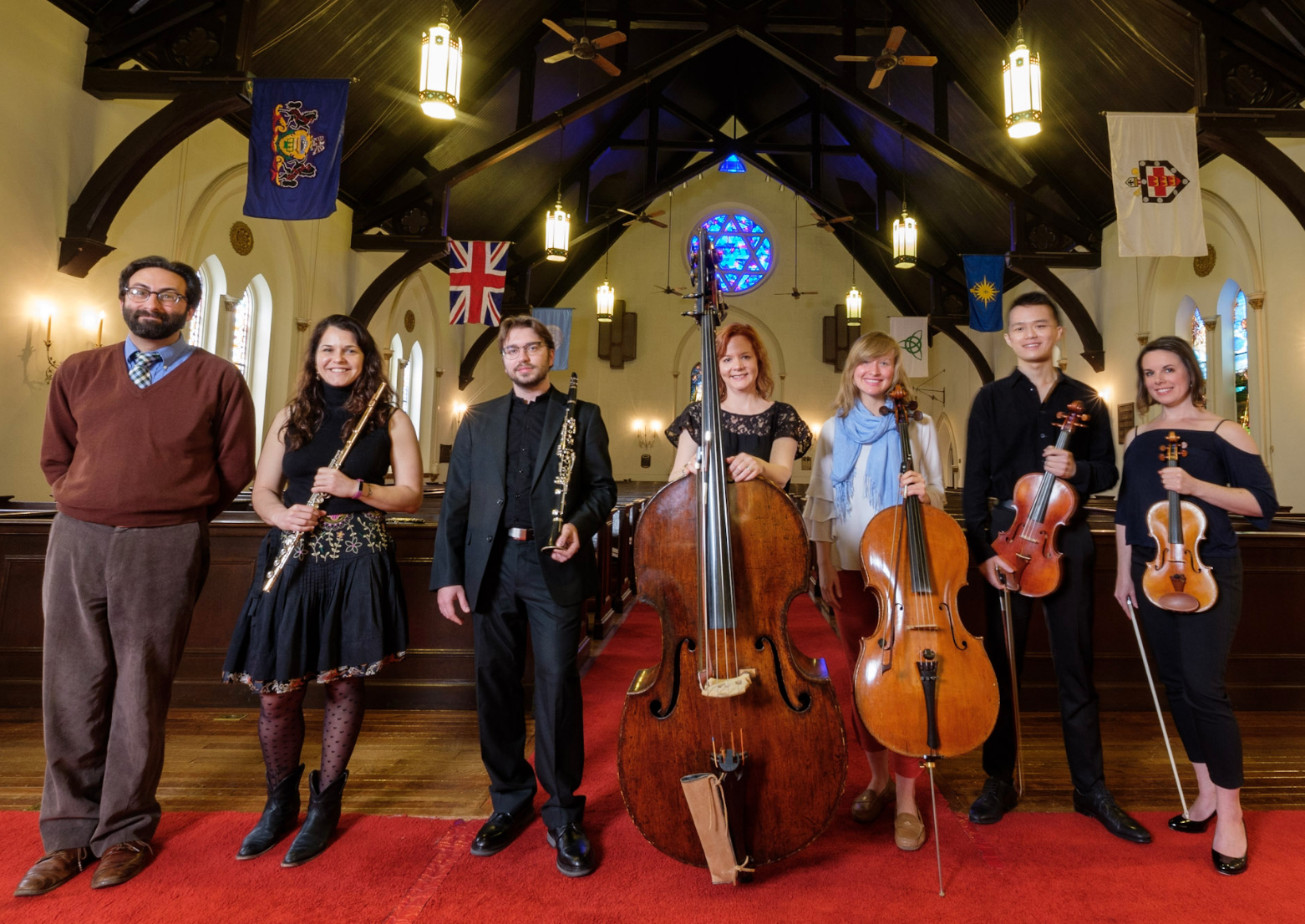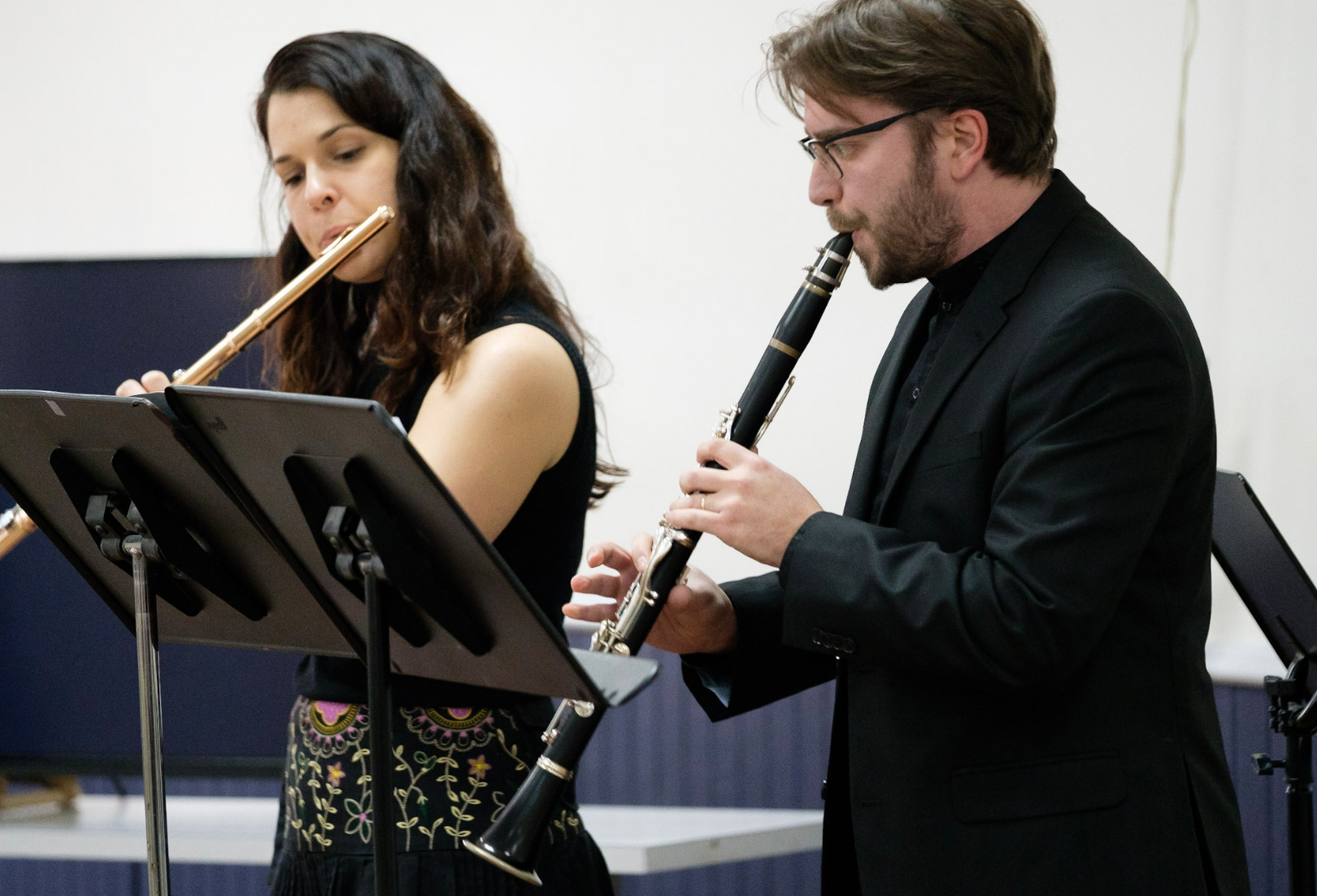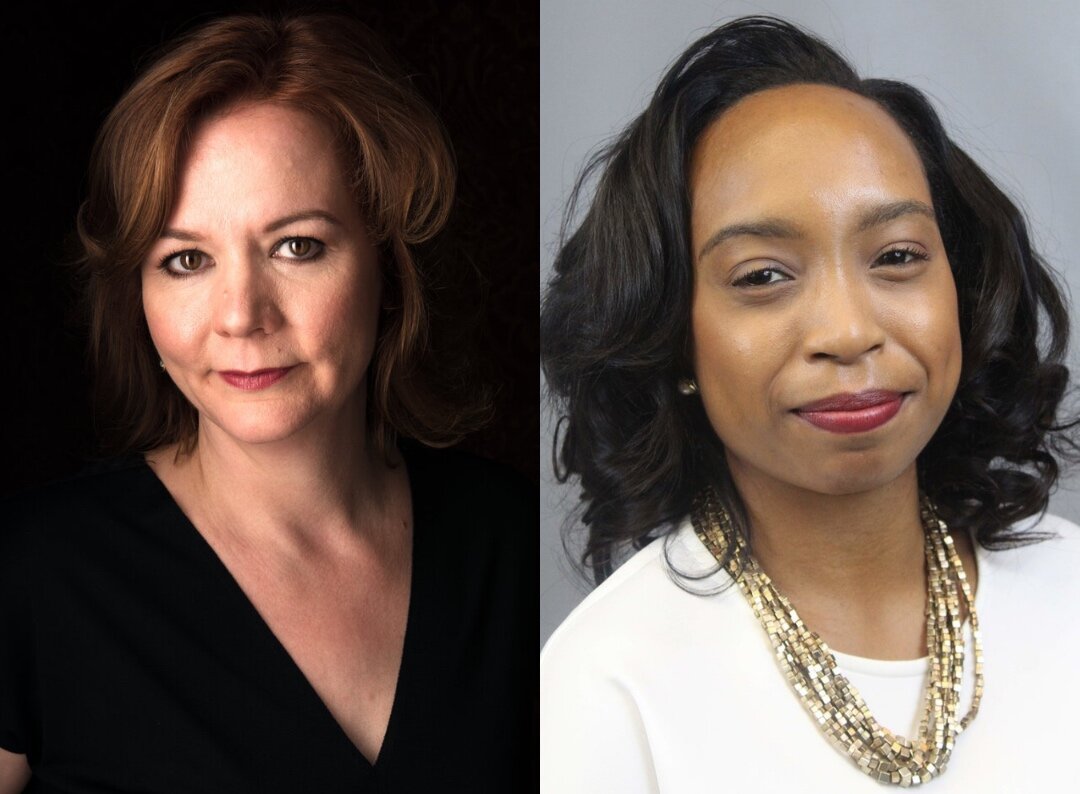Meet Susanna Loewy, Project 440 Program Director and Lead Teaching Artist! Our interview highlights how and why she got involved with this organization, as well as an in-depth understanding of how she practices what she preaches to the next generation of social entrepreneurs.
Q: You’ve been working for Project 440 since Joseph moved to Philadelphia to join the Philadelphia Orchestra. How did you first get involved, and what drew you to this organization?
Since moving to Philadelphia in 2009, I had been a Teaching Artist for the Philadelphia Orchestra. When Joseph moved to Philly, I was excited to learn about his interest in music education and the paths it can take. The music circles are small, and eventually I got to meet Joe and expressed my interest in his non-profit. The next time he had a Teaching Artist opening, he asked me to help out, and from there our working relationship grew!
Q: You wear many hats at Project 440 (and in general!). Can you speak a little about what you do?
Well, I’m the Program Director and Lead Teaching Artist for P440. As Program Director, I develop and help to implement the programs, such as Doing Good, Instruments for Success, and the College Fair. We also have a series of workshops for PMAY and Philly Orchestra Fellows that I organize. As Lead Teaching Artist, I do a bit of ‘teach the teacher,’ where I train the current Teaching Artists to teach our leadership and entrepreneurship curriculum. I also teach for Doing Good, splitting the classes with another excellent Teaching Artist, Nozomi Imamura.
Q: How did you become a Teaching Artist?
I became a Teaching Artist through the Philadelphia Orchestra’s School Partnership Program (SPP). The education and training under Mary Javian was wonderful, and I really fell for the Teaching Artistry field. I worked for 9 years; I only gave up my position last spring after starting in the fall of 2009.
Q: What is your favorite part of being a teaching artist?
I love the idea of entry points -- this is the method of using the music to figure out the best way to reach an audience or group of students. If we can understand how to reach each other, then we can understand each other as humans, and what better way to explore music?
Q: You are involved in many organizations as a flutist, teacher, Teaching Artist, and administrator, a few that you actually started yourself! Can you speak about the other projects/ensembles/organizations you are involved with outside of Project 440?
This is generally when people start to get that glazed-over look in their eyes, but I’ll try! I am the flutist for two chamber ensembles -- Inscape Chamber Orchestra in the DC area, and NakedEye Ensemble in Lancaster. I run a chamber music and visual art festival in Vermont (this summer marks its 8th season!) called the Pikes Falls Chamber Music Festival. Last fall, I founded the Ellipses Ensemble in Philadelphia, which is a chamber music group that ties in documentary storytelling in order to promote mental health awareness.
Then, I teach flute lessons through the Philly Orchestra Fellowship Program and the Primavera Foundation, as well as privately. I’m also faculty at Kutztown University, where I’m the flute teacher for a wonderful studio of young flutists, as well as leading Flute Choir, and teaching a couple of classes -- Rhythm and Movement, and The Professional Classical Musician, a leadership/entrepreneurship class that is based on Project 440’s Doing Good curriculum. I also freelance in the Philadelphia area, playing with area ensembles when called upon. I think that about covers the scope of my career currently… it’s a lot of different avenues of musicianship, but that’s what makes each day interesting; overall, I really try to make sure that I feel invested in what I’m doing -- if I have love and appreciation for the organization or program, then I’m thrilled to put in the work.
Q: If you could give any advice to your high school self with regards to college applications and career choices, what would it be?
It has taken me way too long to understand my strengths and be willing to run with them. We all have our role models and mentors, and mine have been wonderful. I only wish I had been able to recognize earlier that my own path is also valid and valuable, instead of feeling unworthy because I wasn’t doing what I thought I needed to do. I wrote this Teaching Artist Statement a number of years ago; I think it applies here…
“Music careers, in our current 21st-century world, are difficult. We have to learn that they won’t necessarily take on the form as that of our role models, our idols, our classical music rock stars. That can be hard to accept. But once you do, once you realize that you really can make your own opportunities, the musical world is large and bright. You can create situations that truly fit who you are, personally and musically; you can shape your career and teaching to be exactly what it needs to be. Because, no matter what the model, our world will always need music. We’ve evolved as musical beings, and that’s not going to go away. If anything, humanity is starving for more; it’s up to us to put it out there.”















